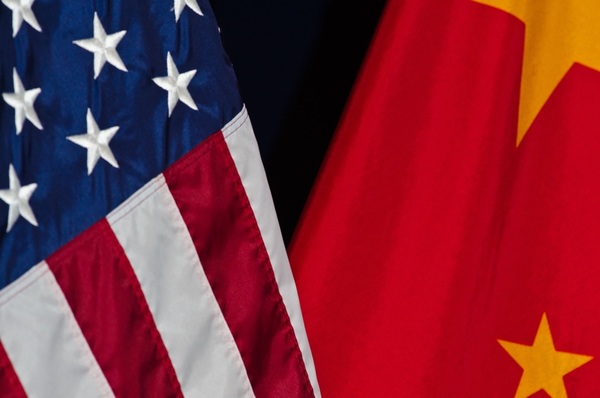
(function(d, s, id) { var js, fjs = d.getElementsByTagName(s)[0]; if (d.getElementById(id)) return; js = d.createElement(s); js.id = id; js.src = “https://connect.facebook.net/en_US/sdk.js#xfbml=1&version=v3.0”; fjs.parentNode.insertBefore(js, fjs); }(document, ‘script’, ‘facebook-jssdk’)); –>
–>
January 1, 2024
They say the generals are always fighting the last war, and sometimes there’s truth to that.
‘); googletag.cmd.push(function () { googletag.display(‘div-gpt-ad-1609268089992-0’); }); document.write(”); googletag.cmd.push(function() { googletag.pubads().addEventListener(‘slotRenderEnded’, function(event) { if (event.slot.getSlotElementId() == “div-hre-Americanthinker—New-3028”) { googletag.display(“div-hre-Americanthinker—New-3028”); } }); }); }
But in 2024, our ability to mount a wartime footing against our most likely enemy is most severely hampered, not by the readiness of our armed forces, but by our most likely enemy’s deep infiltration into not just our military, but the entirety of our civil life.
Consider our response when Russia annexed Crimea in 2014, and then, again, when they escalated with a full-scale invasion of Ukraine in 2022.
We imposed economic sanctions on Russia and Belarus, banning many imports and exports. This was manageable because we have traditionally exported relatively little to them, and imported relatively little from them as well. While these sanctions have certainly been enough to be felt (such sanctions tend to hurt us more than the other party, unfortunately), they could be imposed relatively easily, only because there was relatively little commerce to interrupt.
‘); googletag.cmd.push(function () { googletag.display(‘div-gpt-ad-1609270365559-0’); }); document.write(”); googletag.cmd.push(function() { googletag.pubads().addEventListener(‘slotRenderEnded’, function(event) { if (event.slot.getSlotElementId() == “div-hre-Americanthinker—New-3035”) { googletag.display(“div-hre-Americanthinker—New-3035”); } }); }); }
If we were to maintain a neutral position on the war, we would not have needed to do this at all. It is a critical step, however, if there is a chance of joining the conflict. You cannot continue to trade with a country with which you are at war.
Imagine if we had been dependent on Germany and Japan for either finished goods or manufacturing components, on the day that Japan attacked Pearl Harbor? We obviously lost all commerce in both directions from that day until the end of the war; all pending orders were stopped; any of our dies or molds or manufacturing processes essentially became unavailable enemy property until the war’s end.
Luckily, our dependence on these countries was minimal in 1941; our manufacturing sector could become independent of any countries on the other side of the war’s dividing lines, and we could ramp up domestic production to a wartime footing relatively quickly.
Could we do so today?
As much as we may try to avoid thinking about it, we all know that the next country with which we are likely to go to war is the People’s Republic of China, a communist military dictatorship.
This isn’t an idle fear; China has been threatening our friends for years, recently ramping up not only the rhetoric but physical sea incursions as well. Long known for funding and encouraging North Korea’s saber-rattling against South Korea, Japan, and the United States, Red China is now  making actual moves on the Philippines and other South China Sea neighbors, as well as Taiwan. As America’s leadership grows more impotent, China gets bolder and bolder, and understandably so. Beijing knows that 2024 is likely their best opportunity ever to invade and annex at least one neighbor. Such an invasion will surely create a larger war, and even if the U.S. doesn’t step in, there is no question but that all U.S.-China trade would necessarily come to an immediate halt.
making actual moves on the Philippines and other South China Sea neighbors, as well as Taiwan. As America’s leadership grows more impotent, China gets bolder and bolder, and understandably so. Beijing knows that 2024 is likely their best opportunity ever to invade and annex at least one neighbor. Such an invasion will surely create a larger war, and even if the U.S. doesn’t step in, there is no question but that all U.S.-China trade would necessarily come to an immediate halt.
‘); googletag.cmd.push(function () { googletag.display(‘div-gpt-ad-1609268078422-0’); }); document.write(”); googletag.cmd.push(function() { googletag.pubads().addEventListener(‘slotRenderEnded’, function(event) { if (event.slot.getSlotElementId() == “div-hre-Americanthinker—New-3027”) { googletag.display(“div-hre-Americanthinker—New-3027”); } }); }); } if (publir_show_ads) { document.write(“
We know from any random shopping trip that a majority of the finished goods that we buy in the store — small appliances, electronics, clothing, shoes, toys, gifts — are now made in China. Even most of the electrical products that we manufacture right here in the United States are made here of a wide array of components imported from China. We might manufacture a refrigerator or oven in the USA, using American steel and American glass, but if the printed circuit board, power cord, heating elements or cooling condenser had to be imported from China, our domestic production even of those American-made products will stop cold the day the war starts.
When the inevitable war with China comes, consider what our current interdependence with China will mean to the American way of life:
- Many of our companies depend on exporting to China for their profit margin. Such exports will of course end immediately. But that’s the least disruptive issue, compared to the rest:
- We buy countless finished goods from China. Goodbye to that, for the duration.
- American factories buy countless components everything from off-the-shelf standard products to customized parts. Don’t assume we can just buy them from another country. For millions of globally-sourced parts, China is the only current source. It’s not a matter of ramping up production; it’s a matter of relearning how to make things.
- Countless American businesses “own” factories in China, where not only Chinese people work, but American and other foreigners do as well, often living there with their families. Goodbye to those plants, and their output, and the U.S.-owned equipment, dies and molds, and personnel.
- Similarly, countless Chinese nationals are in the USA, working at American companies. Some are doubtless honorable immigrants; many are undoubtedly plants, foreign agents ready to be activated upon the breakout of hostilities. How do we know which to deport, which to detain, which to welcome as immigrants?
- How many of our colleges depend on the billions of dollars per year in Chinese tuition and joint research grants (which also serve as a cover for stealing our technology?). Once hostilities are joined, the drying-up of this funding will cripple many of our colleges, as will the presence of a veritable army of likely foreign agents.
- How much of our transportation, logistics, and retail economies are dependent on trade with China. Millions of jobs? Goodbye to much of that.
- Consider American-made cars dependent on China for the printed circuit boards that run their dashboards. Consider American pharmaceutical companies who have many of their drugs made in China. Consider the computer networks that power your business, your home internet, your phone service, often local utilities too, most of which depend on Chinese equipment, Chinese parts, Chinese remote control. To how much of that must we say goodbye?
This is just a starting point. There’s much more. America has moved from traditional AC plug-in technology (which could be made anywhere) to cordless technology (which depends on lithium ion batteries almost entirely sourced in China). Almost everything we do, everything we use, everything we depend on, is either partially or wholly dependent on trade with the most malevolent, militant, and expansion-minded country on earth.
Remember how destructive the “supply chain crisis” of 2021-2022 was? That was when we weren’t at war. That was when we just couldn’t get parts for a couple months longer than usual. Now imagine it being five years, or ten, or twenty.
President Trump tried to awaken us to this threat, and even implemented expensive punitive tariffs on Chinese goods, to shake some sense into the American business community. As soon as it started to have an effect, and some American manufacturers started home-shoring again, our nation’s enemies installed Joe Biden in the office of the presidency to put a halt to that corrective process.
China plays the long game. We don’t know for sure if this will be the year it all happens. But if China wants to do it at all, then it’s hard to imagine that there will ever be a better year for it than this one.
The sooner America wakes up, the better.
John F. Di Leo is a Chicagoland-based international transportation professional and trade compliance consultant. A one-time Milwaukee County Republican Party chairman, he has been writing a regular column for Illinois Review since 2009. Read his book on vote fraud (The Tales of Little Pavel) and his political satires on the current administration (Evening Soup with Basement Joe, Volumes I and II, and the brand new Volume Three).
Image: Dept. of Agriculture
<!–
–>
<!– if(page_width_onload <= 479) { document.write("
“); googletag.cmd.push(function() { googletag.display(‘div-gpt-ad-1345489840937-4’); }); } –> If you experience technical problems, please write to [email protected]
FOLLOW US ON
<!–
–>
<!– _qoptions={ qacct:”p-9bKF-NgTuSFM6″ }; ![]() –> <!—-> <!– var addthis_share = { email_template: “new_template” } –>
–> <!—-> <!– var addthis_share = { email_template: “new_template” } –>





